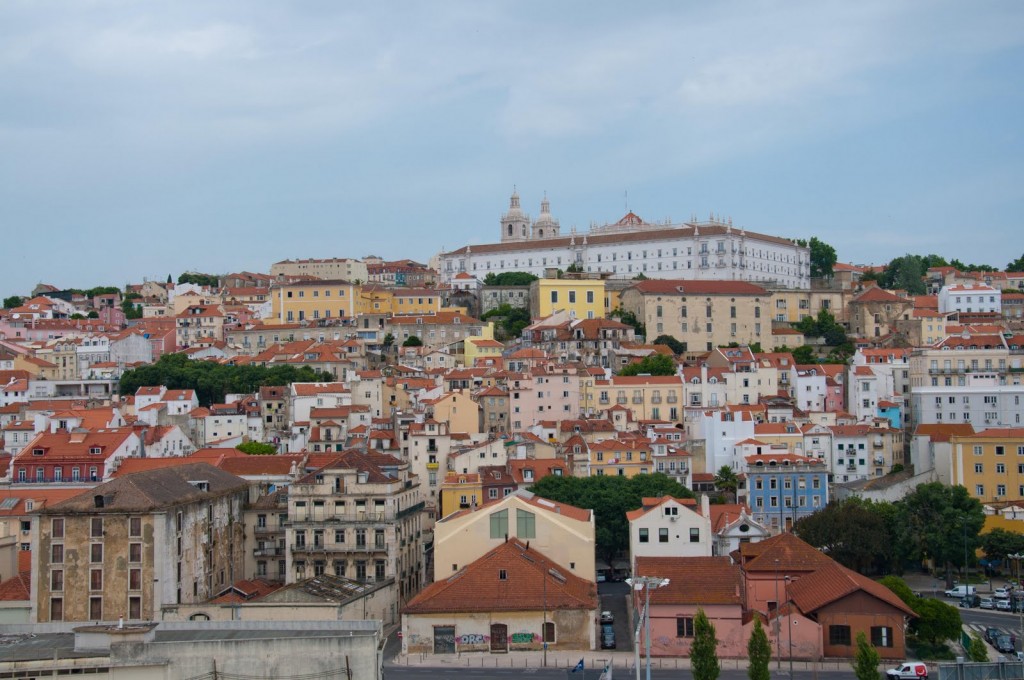 I was inspired by Elena’s post on how she was fascinated by Lisbon, its clean streets and kind people. In fact, it is easier for me to do the same comparison. As you might know, my country was colonized by the Portuguese in the 16th century. The city where I live, Salvador, was the first one to be populated by these Europeans. So in Lisbon, I could feel sometimes as I was at home, and not only because of the language, but also the architecture of the churches and fountains, religion, and of course the similarity with the Brazilian people: sympathy, charisma and this way of receiving tourists.
I was inspired by Elena’s post on how she was fascinated by Lisbon, its clean streets and kind people. In fact, it is easier for me to do the same comparison. As you might know, my country was colonized by the Portuguese in the 16th century. The city where I live, Salvador, was the first one to be populated by these Europeans. So in Lisbon, I could feel sometimes as I was at home, and not only because of the language, but also the architecture of the churches and fountains, religion, and of course the similarity with the Brazilian people: sympathy, charisma and this way of receiving tourists.
I must talk about the fascinating projects we visited. First, the theoretical background and context of climate change and water issues in Portugal given by the researcher Tiago Capela, in the University of Lisbon. I really liked his presentation “Signs of Changes” where he exposed some information which clearly showed us how the climatic scenario has been changing through the history: sometimes getting dryer, sometimes getting colder. In other words: droughts and floods. I would not forget to mention some aspects of Tiago’s speech which could deserve their own post, as the influence of climate change on water quality, the coastal erosion – which greatly impacts on tourism once it affects the beaches, landscape, etc. -, and also the Portuguese National Plan for the Efficient Use of Water.
Rui Cavaleiro came with an essential discussion: the diversity of sources of energy. He brought two important situations with much influence on this agenda: the availability of oil for the next decades and the recent events in Japan. It is not a new debate, in fact, and I do not think we are reaching a consensus here. At the same time I agree with him when he said that technology is the key: “only working with technologic efficiency we will tackle this problem”. I have to disagree, however, of his opinion regarding dam’s constructions. Perhaps, it is because I live in a country with huge natural wealth, with most of the species and water resources on Earth. I would say it is nothing sustainable to say that the positive effects of such constructions (energy supply and thousands of jobs for a few years) will overcome or even justify the negative effects (extinctions of endemic species, the expulsion of 20 thousand of indigenous people, small farmers and fishermen of their lands, the emissions of tons of greenhouse gas due to the flooded forest, and so on).
There is still a lot to say about this trip. I loved the Dolphin Watching and also the visit to the Biomares Project, the project about conservancy of the marine biodiversity at Professor Luiz Saldanha Marine Park, in Setubal. They are remarkable at their work as you can see in the pictures above.
Thank you again to everyone, all friends and the EJC who had participated in this trip. At first, I was not too confident about how trip would progress for me, but I am glad I was wrong and everything was so great that I can’t even describe, just awesome. I am confident promoting exchange will definitely make difference.
@rrajowan





































